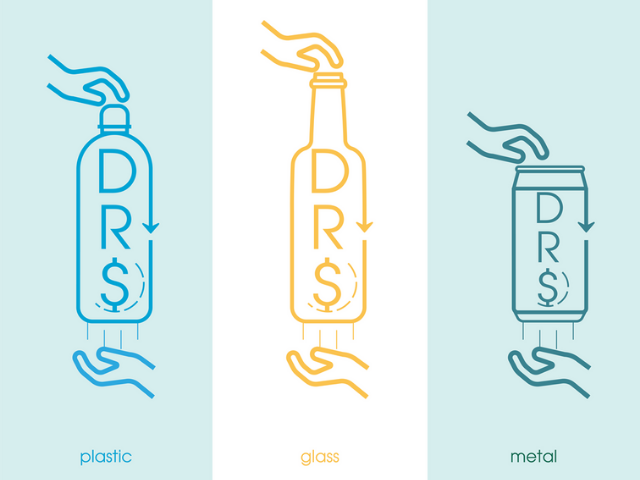
What is a Deposit Return Scheme?
A Deposit Return Scheme (DRS) is a recycling incentive program designed to encourage the return of single-use drink containers like bottles and cans. By providing a financial incentive—a small deposit paid at the time of purchase that is refunded upon the return of the container—these schemes aim to boost recycling rates and reduce litter. In this detailed exploration, we'll delve into how such a program operates, its benefits, implications for businesses and organizations, and its role in the broader context of environmental policy.
How Does a Deposit Return Scheme Work?
The core idea behind this scheme is relatively straightforward. Consumers pay a deposit when purchasing beverages in containers such as glass bottles, plastic bottles (PET), or metal cans. This deposit is then fully refundable when the container is returned to a designated collection point. The system serves to close the loop on the lifecycle of beverage packaging by ensuring containers are returned for recycling rather than discarded.
Mechanism of Deposit Return Scheme
Under this scheme, the consumer initially bears the cost of the deposit. This fee is added to the price of the beverage and is clearly marked to inform the consumer of the potential refund. Upon returning the container to a collection point—often retail stores, special reverse vending machines, or recycling centers—the deposit is returned to the consumer. This simple financial incentive significantly increases the likelihood of containers being returned for recycling.
Impact of Deposit Return Scheme on Recycling Rates
Countries that have implemented this system have seen notable increases in recycling rates. For instance, nations with longstanding DRS policies like Germany and Norway boast recycling rates for beverage containers above 90%. This is substantially higher than countries without such schemes, where recycling rates can linger around 50% or lower. The effectiveness of this program in improving recycling rates is clear, as it directly incentivizes consumers to return their used containers.
Global Applications
Different countries adapt their recycling programs to local needs and regulatory requirements. For example, Scotland includes PET bottles, steel and aluminum cans, and glass bottles in its scheme. Germany, the Scandinavian countries, and some US states also implement deposit systems for various materials. This diversity shows how different regions tailor their programs to meet unique environmental and social needs.
Business Implications
For businesses, particularly those operating nationally and internationally, the introduction of this system can pose challenges. Retailers with multiple locations need to adapt to the logistics of collecting and storing returned containers, managing refunds, and complying with regional variations in legislation. The impact on operational processes can be significant, requiring adjustments in inventory management, staff training, and customer service.
Regulatory Aspects and Compliance
Businesses must stay informed about the legislative environment concerning these schemes. For example, some countries include glass while others exclude it. Such distinctions necessitate careful planning and adaptation by businesses to remain compliant with local regulations.
Environmental and Social Benefits
Beyond increasing recycling rates, this scheme brings broader environmental and social benefits. By reducing litter, these programs contribute to cleaner urban and natural environments. They also decrease the volume of waste sent to landfills and incinerators, reducing greenhouse gas emissions and extending the life of existing landfill sites. Socially, the program can foster a culture of recycling and environmental responsibility among consumers.
Future Prospects
As environmental concerns continue to gain prominence, the role of these schemes in sustainable waste management is likely to expand. Innovations in technology, such as digital refunds or app-based return confirmations, could further enhance the efficiency and appeal of these systems.
Towards a Sustainable Future
This recycling program represents a practical and effective strategy for enhancing recycling efforts. By aligning financial incentives with environmental goals, these schemes can play a crucial role in the transition towards a more sustainable and circular economy. As different countries continue to refine their approach to DRS, the potential for significant environmental impact is substantial, making these programs a key element of modern waste management strategies. Explore our deposit return systems and solutions at https://web.revego.tech/solutions